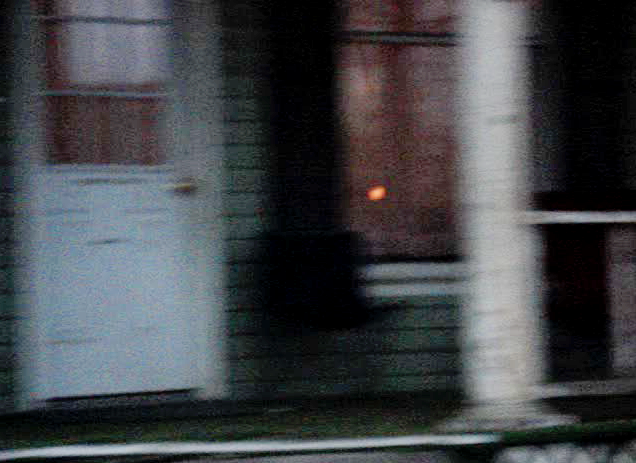I Can't See.
The first time I met her, we walked into the rickety little ancient house, to find two little old ladies sitting next to each other in recliners, not moving and not talking. I didn't know that Grandma had a roomate.
This is Grandma. And I hugged her. And this is Aunt Edda.
No one had spoken of Aunt Edda before and that seemed a little strange to me.
But after a few visits nobody needed to explain how they had forgotten to mention her.
Hello, Aunt Edda.
(I said in my best preacher-son-ingratiating-himself-with-the-older-crowd-voice. )
I'm Andrew.
Well I can't see. responded Aunt Edda.
Hmmm. So that explains the odd tilt of the wig I thought. Still. It didn't seem like exactly a conventional greeting. Perhaps she meant that she needed more context for knowing who I was -- since -- indeed: she couldn't see.
We haven't met before, I said, but it's nice to meet you now.
Well I can't see.
I glanced around the room to see if Aunt Edda had a killer deadpan wit and others were playing along making a joke of me. It wouldn't be the first time this group had strung me along to turn me into a punchline for their collective mirth.
Nothing though.
Nobody else in the room seemed to notice that I was even having a conversation with Aunt Edda. Nobody else in the room even seemed to notice that Aunt Edda was in the room. A separate conversation had started amongst all the other aunts, uncles and cousins on the far end of the room. An ancient floral patterned carpet stretched like a continent between them and where I was having my..."conversation" with Aunt Edda.
I decided that perhaps Aunt Edda needed to talk about her condition. Is it a recent thing, Aunt Edda? I asked.
She looked perplexed.
That your eyesight is...that you can't see?
She shook her head derisively. Of course not.
I can't see."
I looked across the long carpet at everyone else. Certainly this was a joke.
This was the third time that Aunt Edda had told me that she couldn't see -- and she still hadn't said anything else. I was tempted to wave my fingers before her incredibly thick glasses, or stick out my tongue, but I didn't.
Well I'm sorry. I'm sorry that you can't... and I backed away.
Eventually I got used to it. For eight or more holidays I would lean over her, place a quick kiss on her ridiculous cock-eyed wig and say, Hello Aunt Edda, It's Andrew. Merry Christmas, Happy Easter, Happy Thanksgiving.
And without fail she would respond --
I can't see.
It's true that eventually conversations and games would emerge where the regulars would try to invent questions or greetings that would trick her out of her standard answer. These were hypothetical games as far as I know, no one ever actually leveraged them with her, but in the rare moments when we considered --The Unusual Case of the Aunt Who Couldn't Say Anything Other Than She Couldn't See -- humor was the only way that we could invent for dealing with such a strange anomaly.
Or maybe she wasn't such an anomaly?
All of us -- as we withdraw from anything -- start to fade when our vision no longer matches the Collective Vision.
When what they say they see no longer makes sense to me. It starts as a local particular statement. I can't really see that. and grows with force and scope as their vision becomes stranger to us and our inability to see what they see becomes less strange and threatening to us. Hmm, I can't see it... Eventually our claims are broad and sweeping and, at least for the world we are leaving -- total.
I can't see.
And just like Aunt Edda in the corner. We disappear.
We become invisible because we decided that the most important thing about who we are is -- that we can't see.
Maybe we didn't know how to listen to her. Maybe she did the right thing by chanting, singing, insisting something so absurd. Maybe we didn't want to have to deal with the most important thing to her in an honest way -- that wouldn't be the first time a group had chosen not to engage the truly important issue.
Why didn't anyone ever say: So what, Edda? Why do you keep saying that? or Is that REALLY all you ever think about Aunt Edda? or I hear you, Aunt Edda. I'm really sorry. That's completely shitty. Do you want to talk about it more?
Of course these are ridiculous ways of talking. We rarely (any of us) choose to say direct and authentic things. But is it the only way to preserve the dissenters in our communities? Is it the only way, in our increasingly demographically segmented society to guarantee that we ever have conversations with people who don't see things the way we do?
Otherwise how else will any of us really see?



Comments